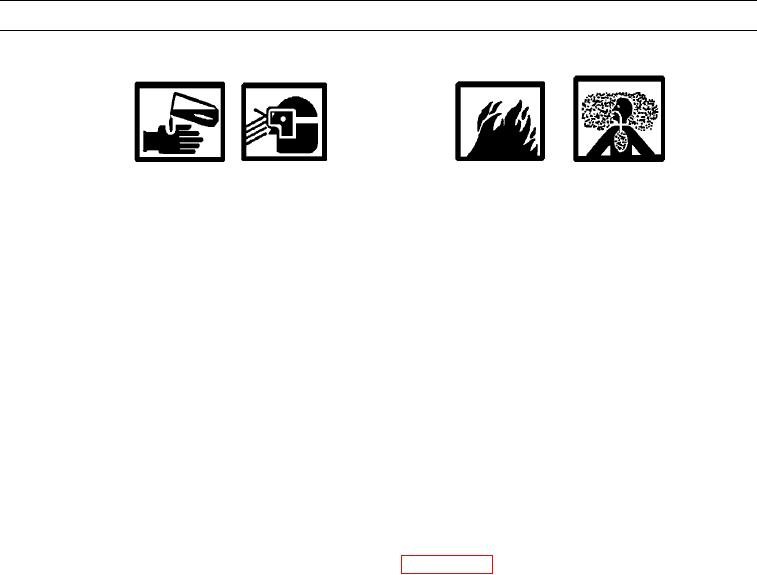
TM 5-3805-291-23-1
AIR CONDITIONING SYSTEM TESTS, INSPECTIONS, AND ADJUSTMENTS - CONTINUED
0018 00
REFRIGERANT COMPRESSOR OIL CHECK
0018 00
WARN I N G
Injury to personnel can resultfrom contact with refrigerant.
This system is under pressure at all times, evenif engine is not running. Heat should never be
applied to a charged system.
Contact with refrigerantcan cause frost bite. Keep face and hands away to help prevent injury to
personnel.
Protective goggles must always be worn when refrigerant lines are opened, even if gages indicate
system is empty of refrigerant.
Always use caution when a fitting isremoved. Slowly loosen fitting. If system is still under pres-
sure, evacuate system recovering refrigerant before removing fitting.
Injury or death to personnel can result from inhaling refrigerant through a lit cigarette.
Inhaling AC refrigerant gas through a lit cigarette or other smoking method or inhaling fumes
released from a flame contacting AC refrigerant gas, can cause bodily harm or death to person-
nel.
Do not smoke when servicing AC or wh never refrigerant gas may be present.
e
N OT E
A special refrigerant oil is used in AC system. Oil mixes completely withrefrigerant so all compo-
nents receive lubrication. A check of refrigerant oil in compressor will give an indication of
amount of the oil in system.
Refer toTheory of Operation for more information (WP 0003 00).
Generally, oil in compressor is ch cked when there is evidence of a major loss of oil. The following
e
conditions may cause loss of oil:
Broken refrigerant hose.
Hose fitting (leaks).
Badly leaking compressor seal.
Component damage.

